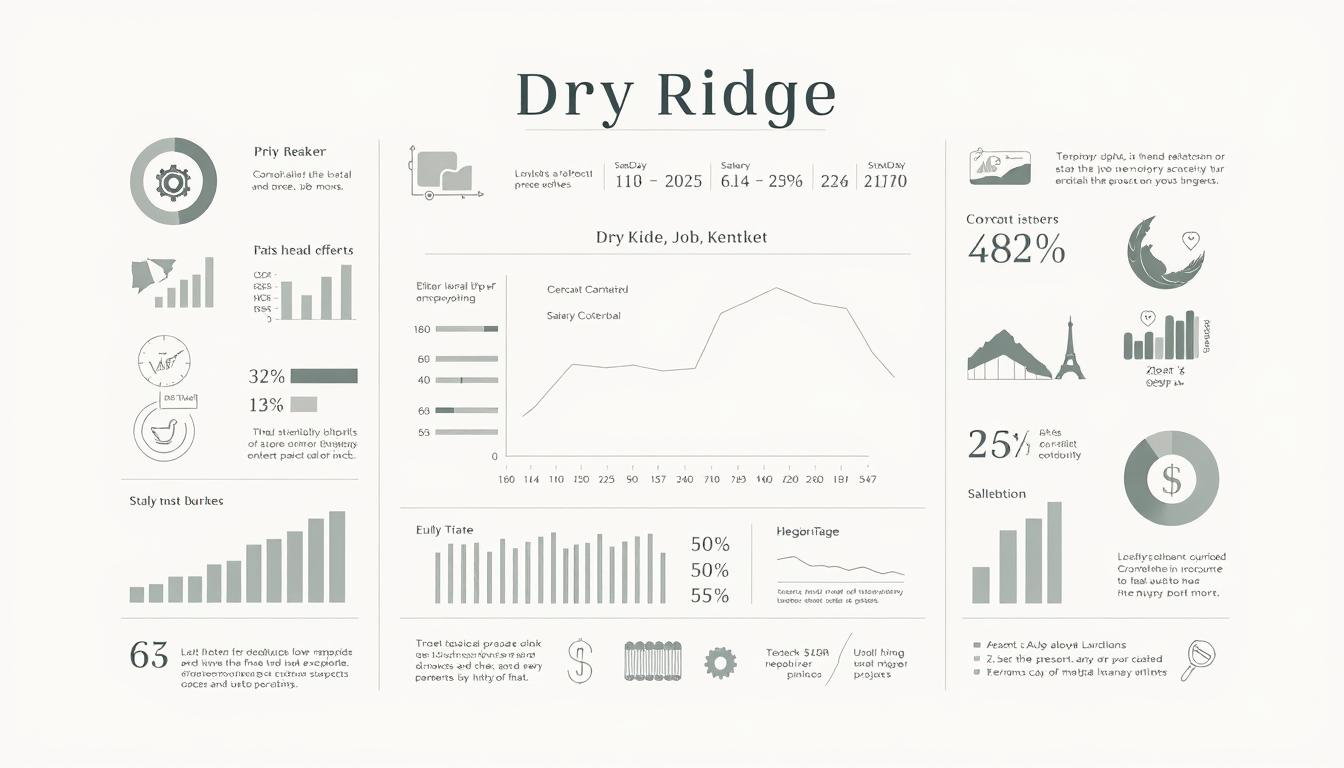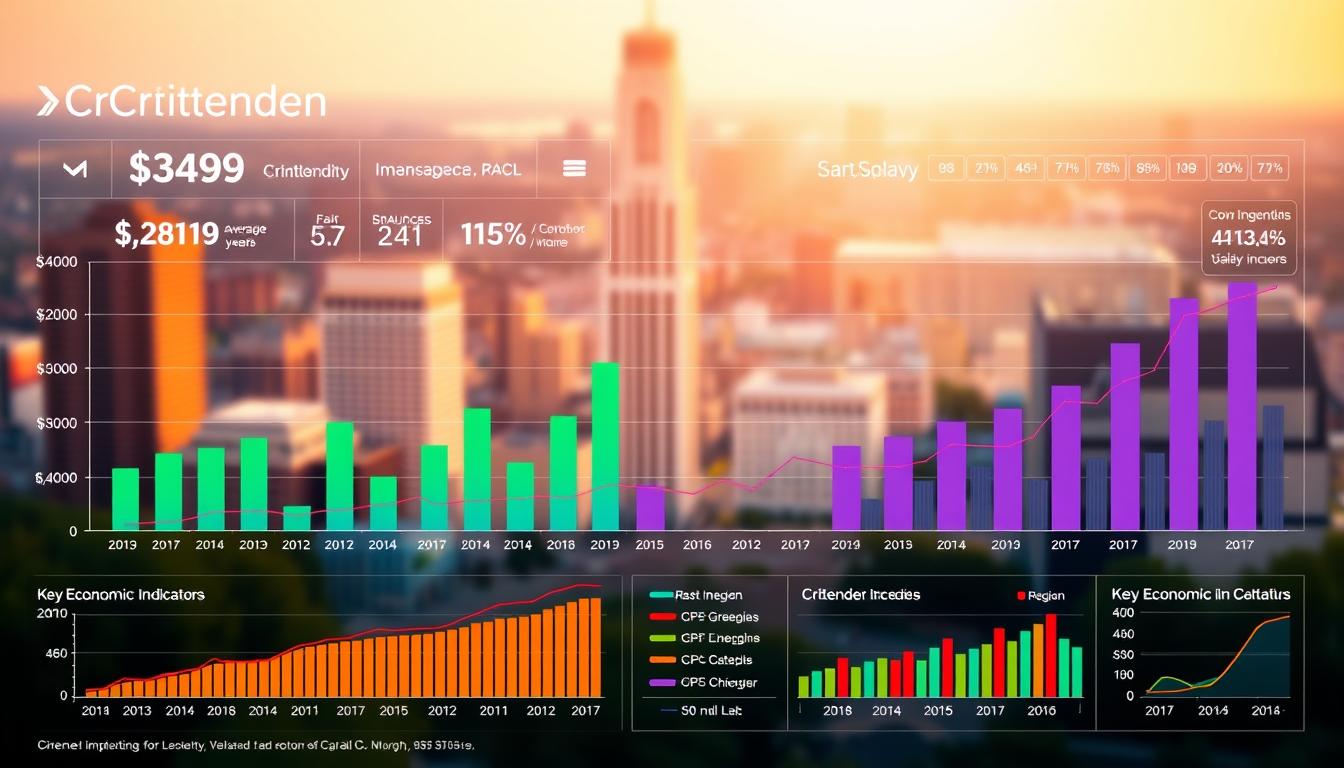Did you know that 87% of hiring managers think your performance in the interview can decide your fate? Even the best resume won’t help if you mess up when you meet the employer.
With tech jobs expected to rise by 15% worldwide by 2030, learning these key skills is crucial. You only have seven seconds to make a strong first impression.
RoboApply’s coaching feature is here to help. It lets you practice answers, improve your delivery, and boost your confidence before the interview. Plus, their AI resume builder and ATS optimizer offer full support for your preparation.
You’re about to learn proven ways to turn ordinary candidates into exceptional ones. Each method has clear steps you can start using right away. These aren’t just general tips—they’re practical techniques that hiring managers really want to see in today’s tough job market.
Key Takeaways
- 87% of hiring managers prioritize performance over resume quality during evaluations
- First impressions form within seven seconds of meeting your interviewer
- RoboApply’s coaching feature provides personalized practice and feedback
- Tech sector growth of 15% by 2030 increases competition for skilled candidates
- Proven preparation methods significantly improve your chances of success
- Modern tools combined with traditional skills create winning combinations
Understanding the Job Market Landscape
The job market has changed a lot, needing new ways to find jobs and prepare for interviews. Employers now look for skills like adaptability and problem-solving, not just qualifications. You need to learn best interview strategies that fit today’s job market.
Remote work has changed how companies hire, with 73% starting with virtual interviews. You must get good at both in-person and online interviews. Knowing these changes helps you get ready for today’s job hunt.
“Employers are increasingly using situational questions to assess not just what candidates know but how they think, adapt, and solve real-world problems.”
Current Trends in Employment
The tech sector is growing fast, with a 15% increase expected by 2030. The UK and US tech industries are creating many new jobs. Knowing what each industry wants is key.
Interviews now focus on how you handle real challenges, not just your knowledge. It’s important to be ready for common interview questions that test your problem-solving skills.
Situational interviews are becoming more common. They test your ability to think on your feet and make decisions under pressure.
Industry-Specific Insights
Each industry looks for different things in interviews. Tech companies want to see your problem-solving and coding skills. Healthcare focuses on empathy and communication. Financial services look for analytical thinking.
Knowing what each industry values helps you prepare better. You can show the exact skills they want. This makes you stand out from other candidates.
Use job tracking tools to keep up with industry trends. This helps you understand what employers are looking for. The insights you gain are crucial for making a good impression.
Crafting an Impressive Resume
A well-crafted resume opens doors to interview opportunities and sets the stage for success. Your resume is the foundation for every interview conversation. It’s crucial to create a document that showcases your value effectively. Understanding how to ace a job interview means preparation starts long before the interview.
In interviews, you’ll discuss your application and expand on your resume. Bringing extra copies shows you’re prepared and respectful. This simple act shows professionalism and ensures everyone has your information during panel interviews.
Tailoring Your Resume for Each Role
Successful job seekers customize their resumes for every application. They analyze job descriptions and include relevant keywords, skills, and experiences. Generic resumes rarely capture attention in today’s competitive market.
RoboApply’s AI resume builder optimizes your resume for each application. It ensures ATS compatibility and keyword alignment, saving you time. The resume writing guidelines offer more insights into creating compelling documents.
Match your qualifications to specific job requirements. Highlight relevant technical skills and adjust your professional summary. This targeted approach makes your resume more effective.
Key Elements to Highlight
Your resume should emphasize quantifiable achievements that demonstrate your impact. Instead of listing job duties, showcase specific results you delivered. Numbers tell compelling stories that hiring managers remember during interviews.
Include relevant technical skills and leadership experiences that align with the position. These elements create your value proposition and differentiate you from other candidates. When preparing for behavioral interview techniques, use these achievements as examples for your responses.
Remember, your resume sparks interview questions rather than serving as a script. Use it as a conversation starter to showcase expertise and personality. The goal is creating opportunities to tell your professional story in greater detail during the interview process.
Always prepare to expand on resume points with specific examples and stories. This preparation helps you respond confidently when interviewers ask about your experiences and accomplishments.
Utilizing Networking for Job Opportunities
Building real professional relationships can open doors to job interviews that usual job searches can’t find. Your network gives you insights into company culture and what the job expects. This makes your job search more focused and personal.
Networking is more than just collecting business cards or LinkedIn connections. It’s about making real connections that help both you and others. When you add value to your network, you become someone they remember and can count on.

Building Meaningful Connections
Creating lasting professional connections takes effort and real interest. Look for industry professionals who share your goals and values. Go to networking events, both online and in person, to talk about important industry topics.
It’s better to have a few close connections than many shallow ones. Keep in touch with old colleagues, mentors, and peers by sharing news and insights. This keeps your network strong and supportive.
Give back to your network before asking for help. Share articles, celebrate others’ successes, and offer your expertise. This builds trust and makes you a valuable part of the network.
RoboApply’s outreach CRM helps you systematically track your networking activities and manage follow-ups. It lets you organize contacts, set reminders, and see how your efforts are paying off.
Leveraging Social Media Platforms
LinkedIn is your main networking tool. Make sure your profile is up-to-date and shows your skills and achievements. Use keywords that match your job goals.
Post interesting content that shows your expertise. Comment on posts from companies and leaders you’re interested in. This makes you more visible and shows you’re knowledgeable.
Engage with content from companies you want to work for. Your comments can start valuable conversations and lead to interviews. Networking can give you sample job interview answers and insights into what employers are looking for.
Connect with people in your field with a personalized message. Follow up with new connections within a week to keep the relationship growing.
Your networking efforts can give you interview tips for success by providing insights into company culture and what interviewers want. This information is key when preparing for interviews and answering questions.
Mastering Online Job Applications
Learning how to ace online job applications can really boost your chances of getting an interview. Today’s job market is all about digital hiring, so you need to know how to stand out. Your online application strategy can make you seen or invisible to employers.
Success in online job hunting is about smart planning and technical skills. You must understand how applicant tracking systems work and what recruiters look for. RoboApply’s auto-apply Chrome extension helps by sending out the best applications for you while you work on your top interview skills.
Best Practices for Job Portals
Creating a strong profile on job sites is key. Start with a professional photo that fits your industry. Your profile should list your work history and achievements clearly.
Use keywords from job descriptions in your profile. This helps applicant tracking systems find your profile for open positions.
Don’t use the same cover letter for every job. Tailor your cover letter to each job, showing how you fit their needs. Always follow the application instructions carefully to avoid rejection.
Keep track of how well your applications do. See which types of jobs get responses and adjust your strategy. Quality applications lead to more interviews than generic ones.
Common Pitfalls to Avoid
Applying the same way to every job is a big mistake. It shows you’re not really interested. Employers can spot generic applications and often reject them right away.
Bad keyword use can block your application from being seen. Many companies use systems that filter out applications without the right keywords. Without proper keywords, you might not even get to a human reviewer.
Not proofreading your application can make a bad impression. Spelling and grammar mistakes suggest you’re careless. Always check your application before sending it.
Applying for jobs you’re not qualified for wastes time and hurts your reputation. Stick to jobs where you meet at least 70% of the requirements. This strategy boosts your success rate and prepares you for mock interview practice.
| Effective Strategy | Ineffective Approach | Impact on Success |
|---|---|---|
| Customized applications with specific keywords | Generic, one-size-fits-all applications | 3x higher response rate |
| Professional profile with detailed achievements | Basic profile with minimal information | Increased recruiter visibility |
| Following application instructions precisely | Ignoring specific requirements | Avoids automatic rejection |
| Quality over quantity approach | Mass application strategy | Better interview conversion |
Not following up can also hurt your chances. Send a thank-you email within 24 hours of applying to jobs you really want. It shows you’re interested and professional, keeping you in the hiring manager’s mind.
Preparing for Job Interviews
Good interview prep turns nervous candidates into confident pros. Effective prep cuts down anxiety and shows you really want the job. The best candidates focus on three key areas: learning about the company, practicing answers, and knowing their worth.
Start getting ready a week before your interview. This gives you time to learn a lot and practice without feeling rushed. Spending quality time on prep boosts your confidence and success chances.

Researching the Company
Learning about the company is key. Start by checking their website, looking at their mission, recent news, and culture. Employers like it when you show you know about their business.
Go beyond the basics by looking at their achievements, challenges, and goals. Check their social media, press releases, and industry reports. This helps you ask smart questions and show you can help them succeed.
Look up the people you might meet during the interview. LinkedIn profiles of your potential bosses and team members are great for learning about their careers. This research helps you connect and shows you’ve done your homework.
Practicing Common Interview Questions
Practicing interview questions boosts your confidence. Focus on behavioral questions that show your skills. The STAR method (Situation, Task, Action, Result) helps you answer well.
Get ready with examples of your problem-solving, leadership, and flexibility. Describe tough situations you’ve faced and how you solved them. Try to show measurable results.
Record yourself to see how you do and what you can improve. This self-assessment helps you work on your delivery and body language. Practice with friends or family to get real feedback.
Knowing Your Worth
Knowing your worth helps you negotiate better. Look up salaries for your role, experience, and location. Knowing the market rates shows you value yourself right.
Be ready to talk about what makes you special. Highlight your unique skills, experiences, or achievements. This helps you explain why you deserve what you’re asking for.
Think about the whole compensation package, not just salary. Consider benefits, growth opportunities, and work-life balance. This shows you’re thinking ahead and value your career. Be open to different offers if the salary isn’t right.
The Role of Coaching in Job Search
Career coaching offers the guidance and support you need to find a job faster. Coaches use their experience and methods to help you in today’s job market. They give you honest feedback on your strengths and where you can improve, keeping you on track.
Investing in a coach can lead to quicker job placement and better pay. Many people find that coaching reduces the stress of looking for a new job.
Benefits of Career Coaching
Professional coaching brings big benefits to your job search. Personalized feedback helps you see your blind spots in interviews and applications. Coaches guide you through career changes and help you tell your story in a way that employers will love.
Career coaches are great at helping you get ready for common interview questions. They teach you the best interview strategies for your field. This boosts your confidence and lowers your nerves during big interviews.
“The right coaching relationship provides ongoing support, objective feedback, and strategic guidance that transforms your job search from a stressful process into a confident, systematic approach to career advancement.”
Modern coaching tools like RoboApply’s interview coach feature offer AI help. It analyzes your answers and suggests ways to improve. This technology gives you practice scenarios for your specific job goals, making your prep more effective.
Other benefits include:
- Accountability for keeping up with your job search
- Expert insights into current trends and what employers want
- Help in finding and sharing your unique strengths
- Strategies for negotiating salaries and evaluating job offers
How to Choose a Career Coach
Finding the right career coach takes some thought. Look for someone with experience in your field and a track record of success. Clear coaching methodologies and a good fit with your communication style are key for effective coaching.
Here’s a table to help you compare career coaches:
| Factor | What to Look For | Questions to Ask | Red Flags |
|---|---|---|---|
| Experience | Industry-specific background, proven client results | How many clients have you helped in my field? | Vague success stories, no specific examples |
| Methodology | Structured approach, clear process outline | What is your coaching framework? | No defined process, inconsistent methods |
| Format | Virtual or in-person options, flexible scheduling | What session formats do you offer? | Inflexible scheduling, limited communication options |
| Cost Structure | Transparent pricing, package options available | What are your rates and payment terms? | Hidden fees, pressure for long-term commitments |
Think about what coaching format works best for you. Some like virtual sessions for ease, while others prefer in-person meetings. Session frequency and cost should match your budget and timeline.
The right coach offers ongoing support and guidance. They help you develop a systematic approach to job hunting, networking, and interviews. They also provide tools and resources to help you, like RoboApply’s job search platform.
Choose a coach who knows the latest in your industry and hiring practices. They should be familiar with digital tools, networking, and modern interview styles.
Developing Effective Job Search Strategies
Your success in finding a job depends on using proven strategies. These strategies help you organize your efforts and track your progress. By doing this, you turn random applications into focused campaigns that lead to more interviews and better opportunities.
Effective strategies mix clear goals with tracking methods. This approach keeps you motivated and makes the most of your time in the application process.

Setting Clear Goals for Your Search
Set specific goals to guide your daily job search. Clear goals give you direction and help you measure your progress.
Essential goal categories include:
- Target roles and job titles you want to pursue
- Preferred companies and industry sectors
- Salary expectations and benefit requirements
- Geographic preferences and remote work options
- Timeline for securing your next position
Make measurable goals like “apply to 15 relevant positions per week” or “conduct 3 informational interviews monthly.” These goals keep you on track and focused.
Set weekly application goals based on your time and the job market. Full-time job seekers might aim for 20-25 applications weekly. Employed candidates might aim for 8-12 quality applications.
Success in job searching comes from consistent daily actions aligned with clear objectives, not from sporadic bursts of activity.
Review and adjust your goals monthly based on market feedback and response rates. If you’re not getting interviews, reassess your target roles or application approach rather than simply increasing volume.
Utilizing a Job Search Tracker
Tracking your efforts reveals successful patterns and helps you learn how to ace a job interview. It shows which strategies get the most responses.
Keep these details for every application:
- Company name and position title
- Application date and submission method
- Contact person and their information
- Interview stages and scheduled dates
- Follow-up communications and responses
RoboApply’s job tracker feature organizes your applications and analyzes your search performance. It tracks response rates, schedules follow-ups, and identifies your most successful strategies.
Watch your conversion rates from applications to phone screens to final interviews. This data helps you focus on the most effective job boards and application methods.
Track behavioral interview techniques that work well for specific companies or industries. Note which examples and stories resonate with different interviewers, building a library of proven responses.
Use your tracking data to find the best application timing. Some companies respond faster to Monday applications, while others prefer mid-week submissions. These insights give you competitive advantages in your search.
Regularly review your tracking data to adjust strategies quickly. If certain job boards aren’t working, focus on more productive channels and networking opportunities.
Keep detailed notes about company cultures and interview processes. This information is valuable for future applications and helps you prepare better for similar organizations.
Navigating the Follow-Up Process
Your actions after the interview are just as important as your interview itself. Showing professionalism through follow-up can keep you in the hiring manager’s mind. How you handle this phase can greatly affect their decision.
Timing and messaging are key in professional follow-up. You want to show you’re interested without coming on too strong. Effective follow-up strategies help you stand out while keeping things professional.

When to Send a Thank-You Note
Send your thank-you note within 24 hours of your interview. This shows respect and proves you’re organized. Speed matters in a competitive job market.
Email is the best way to send thank-you notes. It’s fast and lets you write a professional message without postal delays. Mention specific points from the interview to show you were engaged.
Make each thank-you note personal if you’ve met with several people. Address any concerns and restate your interest in the job. This turns a simple thank-you into a strategic move.
Following Up After an Interview
Wait a week after your interview before your first follow-up if no time was given. This shows patience while keeping you in the running. Respect any timeline mentioned during the interview.
Send follow-ups every two weeks after the first one. This keeps you in touch without being too much. Your messages should show you’re still interested and provide more information that supports your application.
Keep a positive tone in all your follow-ups. Strategic follow-up approaches help you navigate this delicate process while keeping professional relationships intact.
| Follow-Up Timeline | Communication Type | Key Message Focus | Professional Tone |
|---|---|---|---|
| Within 24 hours | Thank-you email | Gratitude and specific interview details | Appreciative and engaged |
| 1 week later | First follow-up | Continued interest and availability | Patient and professional |
| Every 2 weeks | Subsequent follow-ups | Additional qualifications or updates | Persistent but respectful |
| After decision timeline | Status inquiry | Timeline clarification request | Understanding and flexible |
These interview tips for success help you keep professional relationships even if you don’t get the job. Thoughtful follow-up can lead to future opportunities or positive references.
Enhancing Your Interview Skills
Your interview skills can improve a lot with the right techniques. Developing top interview skills needs practice and feedback. The best candidates work on their answers, body language, and how they present themselves before real interviews.
Getting ready for interviews is more than just knowing answers to common questions. You should also build your confidence through practice that feels like real interviews. This way, you can answer questions naturally while still showing your true self.
Conducting Mock Interviews
Mock interviews are key to doing well in real ones. Begin by setting up a space that feels like a real interview. Dress up and act formal, just like you would in a real interview.
Practice with different people to get different views. Family, friends, or career advisors can all help. RoboApply’s interview coach feature offers AI-powered mock interview sessions that fit your industry and role.
Work on different types of questions. Behavioral questions ask for examples from your past. Technical questions test your knowledge. Situational questions check how you solve problems.
Try to record your practice sessions. Videos show your body language, eye contact, and how you sound. Audio recordings help you spot speech issues and how clear you are.
“Practice doesn’t make perfect. Perfect practice makes perfect.”
Receiving Constructive Feedback
Good feedback can turn your preparation into a great performance. Look for feedback on how you answer, communicate, and present yourself. General praise doesn’t help, but specific feedback does.
Ask your practice partners to give you feedback on many things. How well you answer, organize your thoughts, and deliver your answers all matter. RoboApply’s interview coach gives detailed feedback on how to improve your answers and delivery.
Work on one thing at a time instead of trying to change everything. Focus on one area each practice session. This way, you can get better without feeling overwhelmed.
Regular practice makes you more confident for real interviews. Top interview skills come from consistent practice and feedback. Each practice session makes you less nervous and helps you find the best way to show your skills and personality to employers.
Staying Positive Throughout the Process
Your job search journey needs emotional strength and steady effort for lasting success. It can feel overwhelming, but the right mindset changes everything.
Managing Job Search Anxiety
Find healthy ways to deal with job search stress. Make daily plans that include tasks like applying to 2-3 jobs or practicing interview answers for 30 minutes. Try deep breathing and exercise to reduce stress.
Be realistic about your timeline and how long it takes to hear back. Remember, getting rejected doesn’t mean you’re not good enough. Focus on what you can control: how well you prepare, how often you apply, and your attitude.
Celebrating Small Wins
Celebrate every small success, even if it seems tiny. Getting an interview, getting positive feedback, or growing your network are all big wins. Keep track of these to see how far you’ve come.
Keep working on your interview skills and notice how you’re getting better. Each practice session boosts your confidence for the next chance. Showing you’re dedicated to improving shows your commitment to your career.
Job searching is like a numbers game where keeping going pays off. Every step you take brings you closer to the right job for you.
FAQ
What are the most effective job interview techniques to stand out from other candidates?
Effective techniques include researching the company and using the STAR method for answers. Prepare examples that show your value. Focus on adaptability, problem-solving, and cultural fit, as 87% of hiring managers value these.
Practice with tools like RoboApply’s interview coach to improve your responses. This builds confidence for the interview.
How should I prepare for behavioral interview questions?
Use the STAR method to structure your answers. Prepare 5-7 examples from your experience that show your skills. Practice these stories to make them natural.
RoboApply’s interview coach offers AI-powered practice scenarios. This helps you master behavioral interview techniques.
What’s the best way to research a company before an interview?
Study the company’s website, recent news, and financial performance. Learn about their culture and key personnel. This helps you ask insightful questions and show you can contribute to their success.
Use RoboApply’s job tracker to monitor industry postings. This helps you identify what employers seek.
How do I tailor my resume for each job application effectively?
Analyze job descriptions and match your resume to the position. Highlight achievements, skills, and leadership experiences. RoboApply’s AI resume builder optimizes your resume for each application.
What are the current trends in job interviews I should know about?
73% of companies now conduct initial interviews virtually. Employers value adaptability, problem-solving, and cultural fit. Tech companies focus on behavioral and technical questions, while healthcare emphasizes empathy.
How can I build a professional network to increase interview opportunities?
Provide value to your network by sharing insights and congratulating connections. Optimize your LinkedIn profile and engage with target companies. RoboApply’s outreach CRM helps you track networking activities.
What are the best practices for online job applications?
Create compelling profiles with professional photos and detailed work histories. Use specific keywords from job descriptions and customize cover letters. RoboApply’s auto-apply Chrome extension streamlines the application process.
When and how should I follow up after a job interview?
Send a thank-you note within 24 hours of the interview. Personalize it with specific conversation points. For follow-up, wait one week then every two weeks.
RoboApply’s outreach CRM helps you schedule and track follow-ups. This maintains professional contact without being pushy.
How can mock interview practice improve my performance?
Conduct mock interviews with realistic questions and settings. Practice with career counselors or RoboApply’s interview coach. Record your sessions to review your performance.
Regular practice builds confidence and reduces anxiety.
What should I include in my job search strategy?
Set clear goals including target roles and salary expectations. Create specific objectives like applying to 15 positions per week. Use RoboApply’s job tracker to organize your applications.
How do I choose the right career coach for interview preparation?
Look for a coach with relevant experience and a proven track record. Ensure their coaching style fits yours. RoboApply’s interview coach offers AI-powered coaching tailored to your target roles.
How can I manage job search anxiety and stay motivated?
Establish daily job search activities that feel manageable. Use RoboApply’s platform to streamline activities. Celebrate small wins like securing interviews or receiving positive feedback.
What are the most common interview mistakes to avoid?
Avoid generic applications and neglecting company research. Prepare specific examples for behavioral questions and ask thoughtful questions. Follow up appropriately and proofread all communications.
How important is salary negotiation preparation for interviews?
Knowing your worth is crucial for interview success. Research salary ranges and understand your value proposition. Prepare to discuss compensation confidently.
This shows professionalism and ensures you can negotiate effectively when offers are presented.


















